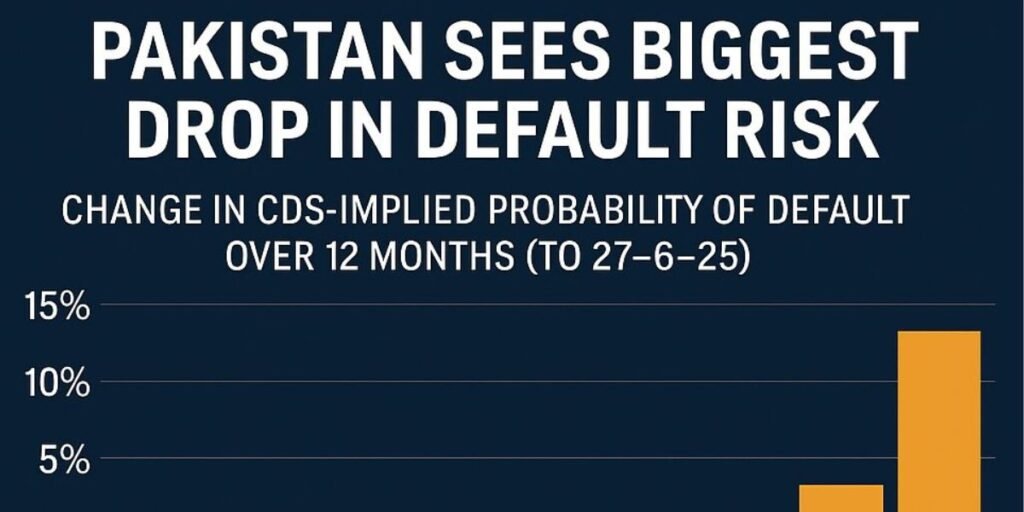Pakistan has recorded the biggest drop in sovereign default risk among emerging markets, according to data shared by Bloomberg Intelligence.
Over the past 12 months, Pakistan’s default probability fell from 59% to 47%. This is a drop of 1,100 basis points.
This is the largest improvement in credit default swap (CDS)-implied risk globally.
Pakistan ranked ahead of other countries that also saw improvements, such as Argentina (7% drop), Tunisia (4%), and Nigeria (5%).
In contrast, default risk increased in countries like Turkey, Ecuador, Egypt, and Gabon.
Experts say the drop in Pakistan’s default risk is due to:
- Macroeconomic stabilization
- Structural reforms
- Strong engagement with the IMF
- Timely repayment of debts
- Better credit ratings from agencies like S&P and Fitch
This shift shows that global investors are gaining confidence in Pakistan’s economy.
Furthermore, Pakistan and the United States are finalizing high-level trade negotiations, expected to conclude in early July 2025. These talks aim to reduce the crippling 29% tariffs on Pakistani exports and unlock billions in U.S. investment—especially in mining and energy sectors like the Reko Diq project.
The stakes are high: this could be Pakistan’s biggest trade shift since the GSP+ deal with the EU.
Why Pakistan–U.S. Trade Talks 2025
1. High Export Tariffs Hurting Pakistan
Since 2020, Pakistani exports to the U.S. have faced up to 29% tariffs, severely affecting textile, leather, surgical, and chemical sectors. While exports to the U.S. totaled over $5.9 billion in FY24, these duties slashed competitiveness.
2. Pakistan’s Trade Surplus – A Trigger
Pakistan reported a $3 billion trade surplus with the U.S. last year. Ironically, this became a sticking point, triggering tariff reviews under Trump-era policies that remain today.






